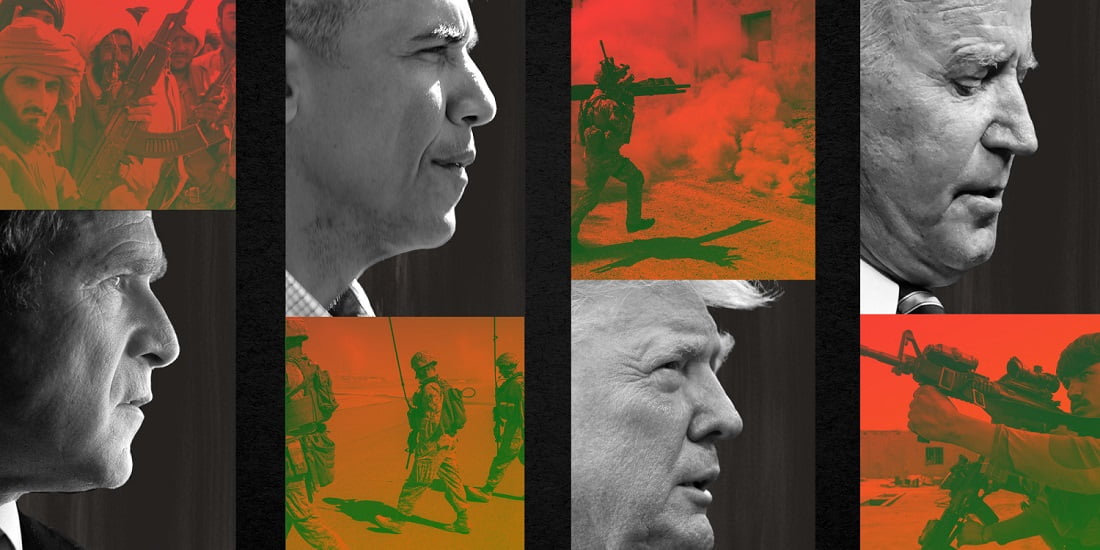The US abrupt withdrawal from Afghanistan has had sharp consequences for the country. Washington will also face a distrust of partners en route.
While the Taliban was storming through Afghanistan and capturing Kabul, the global community sat aside watching. Taliban’s proclamation of a transitional administration few weeks later served as demonstration of the flaws in the US policy.
The wrong policy will certainly have consequences for the US in the long run. Various Washington partners who have counted on US security and defense support in the past may be concerned. There is no assurance in US commitment to its allies.
Part of the Washington partners may seek assistance elsewhere, perhaps by establishing new network of ties far outside US conventional circle. This will be the primary result of the US distrust of partners and diminishment of power in global scene. Furthermore, China and Russia’s rising influence in the region may intensify. Both giants are attempting to replace the expanding gap left by Washington.
Pakistan is another American ally that might suffer acute implications of the US departure from Afghanistan. Despite the country’s claim that it has expended its power over Taliban, the US has repeatedly pressed it to do more to negotiate a peace arrangement between the Taliban and the former Afghan administration. Before America’s departure, a split was clearly widening.
NATO has said that Islamabad has a particular duty to guarantee that the Taliban fulfills its legal obligations. However, Pakistan’s Human Rights Minister made a sharp backlash. Shireen Mazari said that her country would no longer tolerate the blame for the shortcomings of third part actors.
With the US-Pakistan strategy disintegrating over Kabul’s political future, the latter may find itself even more detached. This is the best sobering indication of how distrust of partners may lead to Washington seclusion.
Distrust of Partners
Afghanistan’s neighbors feeling of threat is part of the story. The United States’ waning influence in the Middle East, moreover, may encourage allies and partners to reconsider their positions. The United States has already stated that it will leave Iraq in less than three months. Although the United States has backed the current Iraqi administration, Baghdad may feel vulnerable if the US is to repeat the devastating experience of Afghanistan.
Ties with Persian Gulf partners such as Saudi Arabia and the UAE has also been subject to deteriorations. They are also victims of US precarious policies. This is the second phase of distrust of partners.
The UAE was willing to distance itself from Washington’s diminishing grip. Its recent engagement with Iran, which began in early 2020 in response to its own security issues. Another example is Abu Dhabi’s tilt toward Beijing and Moscow in the Middle East, after both nations’ development in the region and Washington’s waning influence.
Furthermore, Abu Dhabi’s recent efforts to improve relations with Turkey is another result of nations attempting to wean themselves off of reliance on US. Amid the turmoil in Afghanistan, Abu Dhabi Crown Prince Mohammad Bin Zayed contacted Erdogan.
Turkey was undoubtedly amenable to Emirati business interests before to the reconciliation. It was, nevertheless, primarily Abu Dhabi’s effort and pragmatic attitude that prompted it to pursue warmer relations with Ankara.
With Afghanistan’s disintegration, even NATO may confront domestic schisms. Several Washington partners in NATO believe that Biden administration didn’t work well with them on pullout plans. A significant example is the way European countries urged Washington to postpone its original pullout date from August 31.
The US refusal and the ensuing debacle may signal a potential distrust of partners in NATO. A looming crisis may strike Washington sooner than later.








